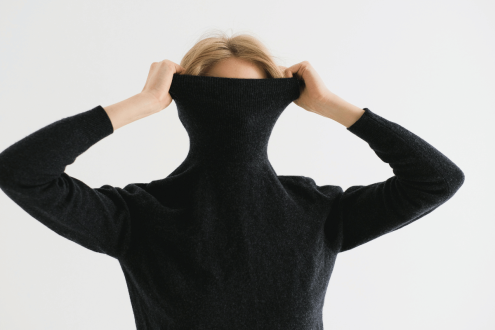Keep it Happy -Time to tackle your Time Thieves…
Deborah Stephenson, soon-to-be Ollie Coach, asks "does all this busy-ness actually make us happier? It does feel good when we are productive and fulfilled yes, but it’s definitely a balance which all too often tips into overload."

“It’s not enough to be busy… the question is: what are we busy about?” – Henry David Thoreau
“Why aren’t there 25 hours in a day?” wailed my daughter one night when I said it was time to sleep.
“I know what you mean,” I replied turning down the light, “but there aren’t I’m afraid, so you need to stop reading and lie down.” She clutched the book tightly, peering at the pages in the dark, determined not to give up.
“Ok…” I said brightly, prizing the book out of her hand, “…well, what would you do with your extra hour?”
She looked up, “Oh… all the things I still want to do of course!”
I do understand. I’ve often wished for an extra hour (or two) when a day hasn’t seemed long enough to fit everything in I needed to do, let alone anything I want to do! Time flies not only when you’re having fun it seems, and I know I’m not the only one who wonders “where did that morning/evening/week/year go ?”.
How many times do we ask someone how they are and an abrupt (or weary) “Busy!” comes back in reply. We use phrases like “on a treadmill”, “up to my ears…”, “spinning plates” and “juggling”. Culturally it now seems important to be constantly working hard and “on the go”, and people often describe feeling guilty or of less value if they aren’t.
The question is, does all this busy-ness actually make us happier? It does feel good when we are productive and fulfilled yes, but it’s definitely a balance which all too often tips into overload. It’s interesting isn’t it that big companies now profit from us “buying time” like fun experience days or relaxing spa breaks. We give these gifts to busy friends and family so they can schedule “time out” into their busy calendar (because they never do it for themselves).
There are of course certain situations in life where we will be madly hectic from the moment we wake until the moment we sleep, like looking after a new baby, or a big work project, or caring responsibilities, but it isn’t sustainable and will take its toll over a longer period. A “too hectic” pace of life can make us feel stressed, snappy, anxious and tired, and will ultimately make us ill.
Making good use of our time really doesn’t mean cramming everything in until we drop (my husband will give a wry smile as he reads this because that tends to be my default). Humans are not built to go flat out all the time and actually function best in short bursts of busyness with periods of rest in between – there’s no clearer demonstration of this than our pre-programmed need to sleep for a while every 24 hours.
What would you do with an extra hour every day?
One more hour would give us …well, 365 hours extra a year (and a bonus one every leap year). That’s a lot of reading, film watching, socialising, writing, fishing, knitting, yoga, sport, or whatever your thing is. The average person could walk more than 1,000 miles in 365 hours, you could probably learn to play a musical instrument to a fairly good level, and you could certainly bake a lot of cakes!
I bet while you’ve been reading this your mind has already wandered off to explore it’s own fantasy “spare hour” list. You could do so much… the extra time would make all the difference…
But would it?
Would 25 hours really mean we’d do all those things we want to do? or would we just fill it with everything we fill the other 24 hours with and then wish for 26? Is it really lack of time that means we can’t do the things we want to do or the way we use the time we have?
Try writing down your “spare hour” list – it certainly concentrates the mind. You might be surprised at what comes up and if, as my daughter says, these are “all the things you really want to do”… then…
oh…
I nearly wrote “find time to do them”, but there’s the difficulty – we can’t just “find time”, it’s not hiding in a cupboard or down the back of the sofa, and neither can we “make time”, but there things we can do to help us to use time well so that we can do all that we want to do with less stress and more control.
For this we need a second list (you know I love a list!) – a list of Time Thieves.
We all have them – they go by the names of Distraction, Interruption, Procrastination, Perfectionism… Tiredness, Overthinking, Lack of Planning… Saying “Yes”. Not saying “No” (we’re a helpful species on the whole so this is hard). Expanding work to fill the time… TV, Social Media… I could go on! They are cunning and stealthy, and often work together. Before we know it, they’ve crept up on us, and the hours and minutes are gone.
Who or what is robbing your time?
Take a moment to reflect. Are you doing the things that are the most important for you and the things that make you happy? If not, which thief is at work? What changes can you make to protect your days and keep the hours safely in your possession?
Time is just time, it ticks along unchanging, and at the end of the day, we have 24 hours, that’s all. Those hours are ours to manage. We won’t be able to do everything, but we do have a choice.
Is it time to re-prioritise?
And there’s something else too…
Often the wisest use of time is to rest (which is something my daughter has yet to understand!).
Sleep and relaxation are things we regularly compromise when we are busy, but we really shouldn’t. Research shows that getting the right amount of sleep greatly improves our attention and concentration. It helps us to remain focused for longer and to learn more quickly. Spending more time stopping, resting or sleeping can energise us for the next thing we have to do and reduces stress levels and anxiety. All of these things would make us better able to notice our time thieves and send them packing.
21st century lives do get busy and we live at a speed no other humans have lived at before. If you feel you are always going at 100 miles an hour then put yourself in the best place possible to be both productive and happy, by allowing rest to regularly climb to the top of your to-do list.
Deborah Stephenson, soon-to-be Ollie Coach
I am an Ollie School trainee and a Director at an Independent Prep School for boys. I am a trained journalist and worked in BBC Local Radio for more than twenty years as a reporter, bulletin reader, news editor and programme maker. It was a great job, but I wanted to do something to support my own children’s wellbeing with a view to taking that on to support others and, in pursuit of a better work life balance, I resigned as the Assistant Editor of BBC Essex last year. Inspired by the Ollie School concept I was excited to be accepted for the training course and it has been a fascinating and enlightening and journey so far.
To get in contact with Deborah, email info@ollieandhissuperpowers.com
To find out more about Ollie and his Super Powers and how to become an Ollie Coach go to https://www.ollieandhissuperpowers.com/pages/about-us
Caroline Chipper
Director
Co founder of Subconquest Ltd, that trades as Ollie and his Super Powers. My many years of commercial experience is being put to good use managing the business side of Ollie, including working with our Ollie Coaches, and managing our contracts. In everything we do its about making a difference to those we work with. To find out more go to https://www.ollieandhissuperpowers.com/pages/about-us



